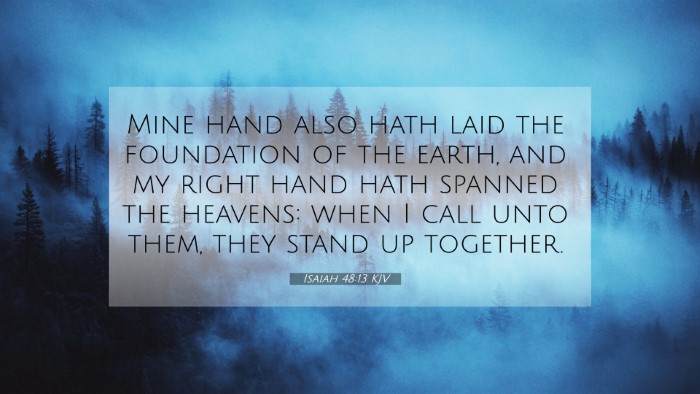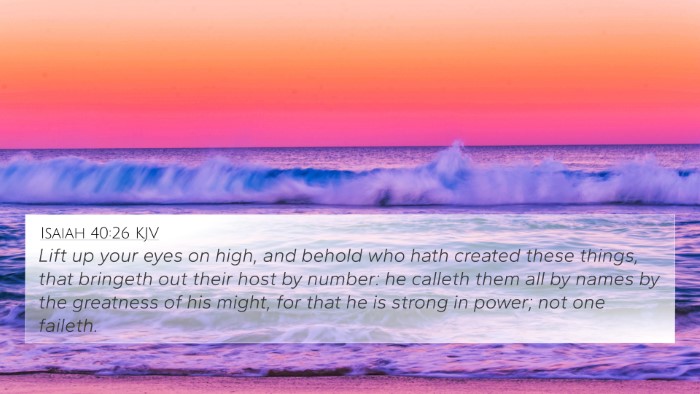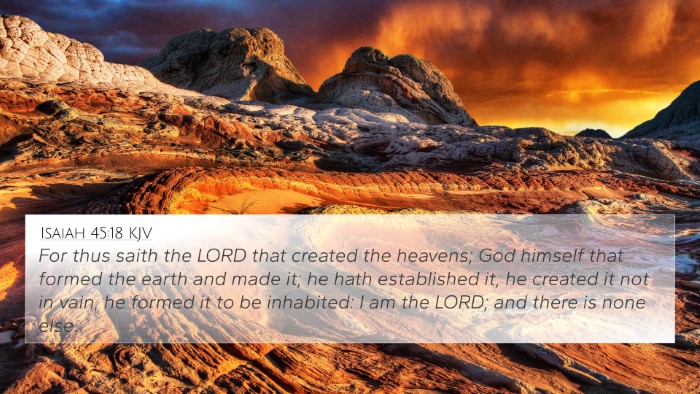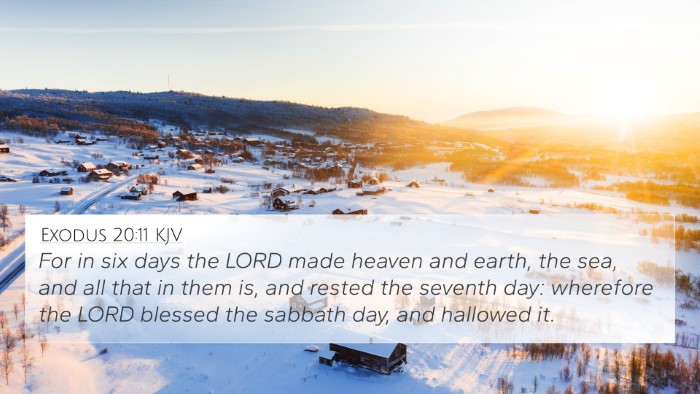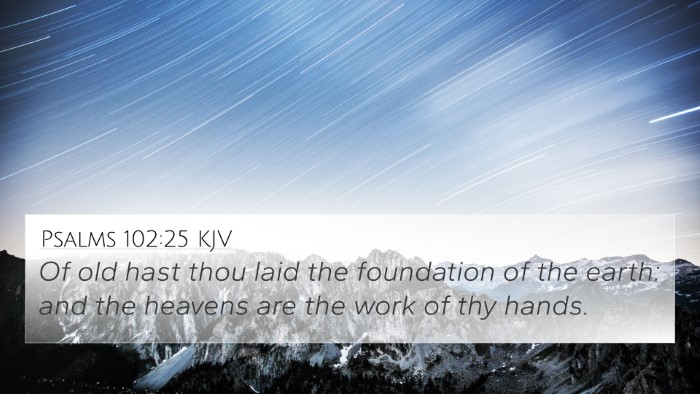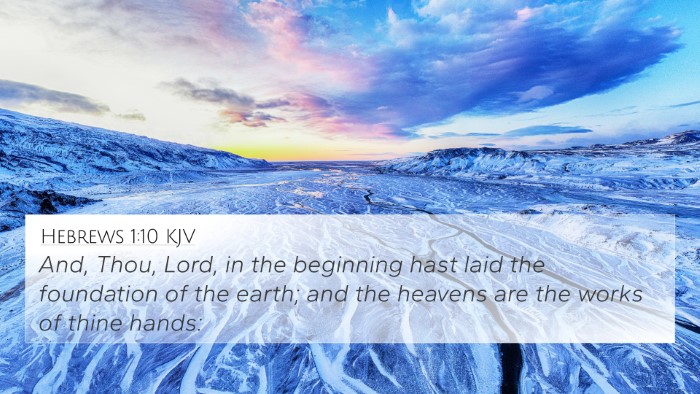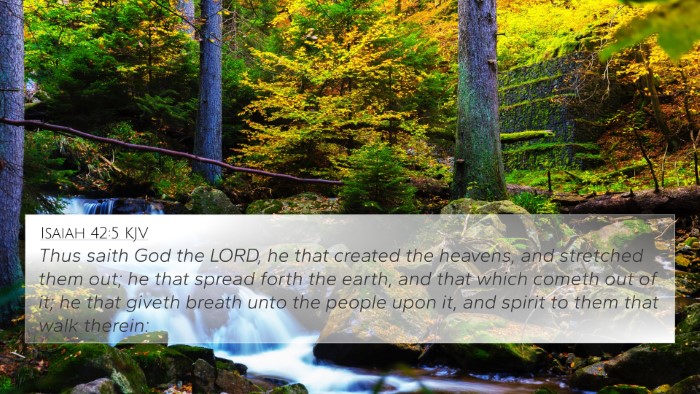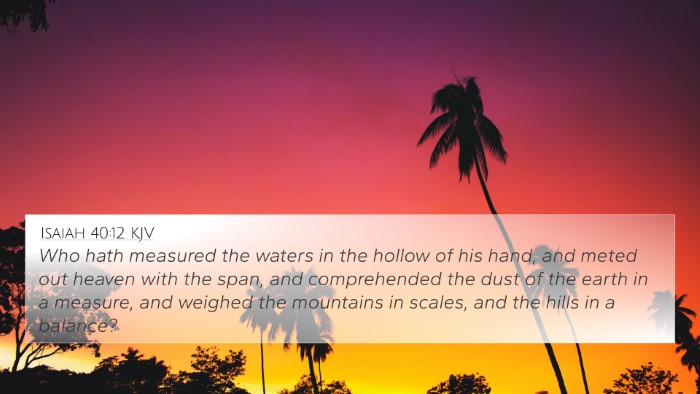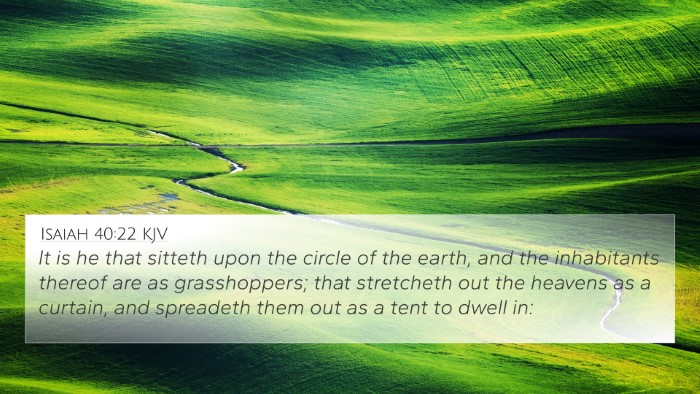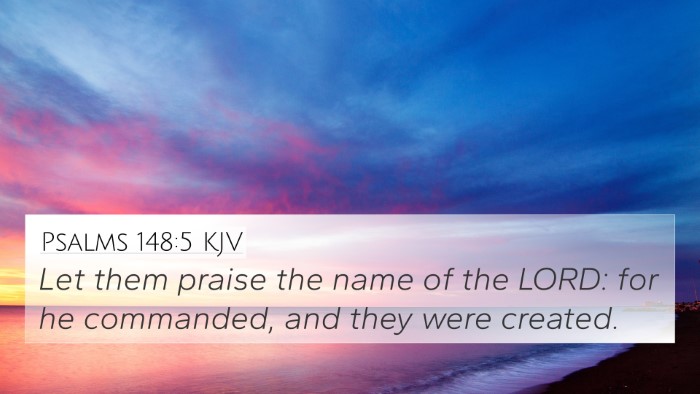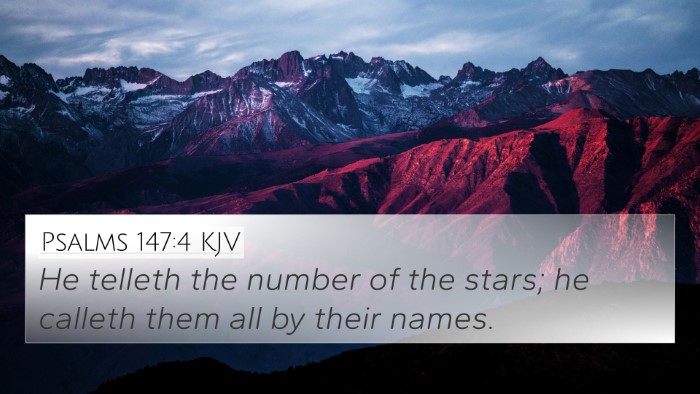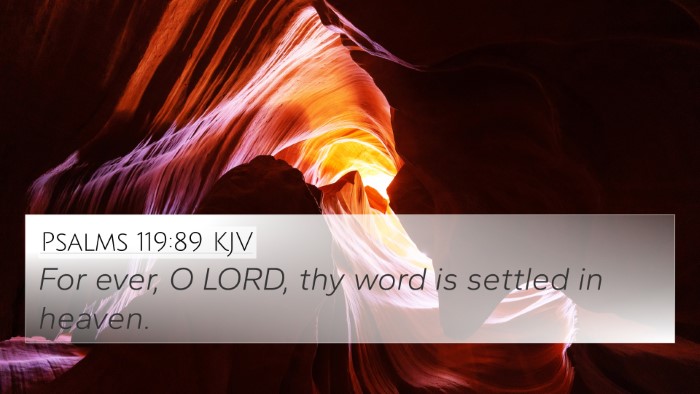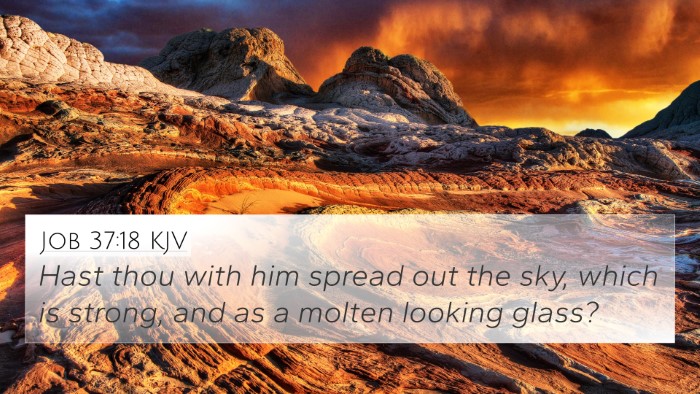Understanding Isaiah 48:13
Isaiah 48:13 states:
"My hand also hath laid the foundation of the earth, and my right hand hath spanned the heavens: when I call unto them, they stand up together."
Summary of Meaning
This verse emphasizes the sovereignty and power of God as the Creator of all things. Through this passage, the prophet Isaiah asserts that God not only created the earth but also the heavens, showcasing His omnipotent authority over the universe.
Commentaries Insight
-
Matthew Henry:
Henry highlights the idea that God's creative power is not just a one-time act but an ongoing demonstration of His greatness. The mention of "my right hand" denotes strength and the active role of God in the ordering of creation, indicating that all things respond to God's call.
-
Albert Barnes:
Barnes interprets the phrase "stand up together" as a poetic rendering of the created order. He underscores the unity of creation under God's command and asserts the idea that when God commands, all of creation comes into alignment.
-
Adam Clarke:
Clarke provides a detailed analysis of the implications of the imagery used in this verse. He discusses the rich metaphor of God using His hands to create and control the universe, reinforcing the intimate connection between the Creator and His creation.
Cross-References
Isaiah 48:13 is interlinked with various scripture passages that elucidate its meaning:
- Genesis 1:1: "In the beginning, God created the heaven and the earth."
- Psalm 33:6-9: "By the word of the Lord were the heavens made..."
- Colossians 1:16: "For by him were all things created that are in heaven, and that are in earth..."
- Job 38:4: "Where wast thou when I laid the foundations of the earth?"
- Hebrews 1:10: "And, Thou, Lord, in the beginning hast laid the foundation of the earth..."
- Isaiah 42:5: "Thus saith God the Lord, he that created the heavens, and stretched them out..."
- Romans 1:20: "For the invisible things of him from the creation of the world are clearly seen..."
Thematic Connections
When considering the broader themes that Isaiah 48:13 encapsulates, one can see the undeniable connections between the ideas presented:
- Creation and Sovereignty: This verse is a declaration of God's supreme authority over the cosmos, linking it to the themes of creation found throughout the Bible.
- Divine Command and Response: The responsiveness of creation to God's voice is a prevalent theme in both Old and New Testaments, reflecting the search for harmony between Creator and creation.
- Reassurance and Hope: In a world that often seems chaotic, the assurance that God has laid the foundations of the earth promotes hope and confidence in His ultimate control and purpose.
Inter-Biblical Dialogue
The assertion in Isaiah 48:13 opens a dialogue within the Scriptures regarding the nature of God as Creator. This dialogic exchange can be viewed through several lenses:
- Old Testament vs. New Testament: The continuity of God's creative authority from Isaiah to New Testament passages illustrates the enduring nature of this theme.
- Prophetic Literature and Apostolic Teaching: The prophets frequently spoke of God's creation while the apostles reaffirmed this in their letters and teachings.
- The Wisdom Literature: Books like Proverbs and Ecclesiastes echo similar sentiments about creation, reflecting on the orderliness instilled by God.
Understanding Connections
For those seeking a deeper understanding of the Bible's interconnectedness, consider using tools for Bible cross-referencing, such as:
- Bible Concordance: A comprehensive list of words and phrases can help locate similar verses across different books.
- Bible Cross-Reference Guide: Useful for finding related scriptures efficiently.
- Cross-Reference Bible Study Tools: These tools aid in pinpointing how different verses illuminate one another.
Conclusion
Isaiah 48:13 articulates a powerful truth about God's governance over the universe, reflected in the creational narrative throughout the Scriptures. The verse not only stands alone but also finds profound connections with various Biblical texts that reinforce its message. By engaging in comparative Bible verse analysis and exploring thematic connections, believers can deepen their understanding of God's nature and His work throughout history.
For a fruitful study of the cross-referencing of Biblical texts, consider exploring how to find cross-references in the Bible, identify connections between the Old and New Testament, and understand the links between the Prophets and Apostolic teachings.


